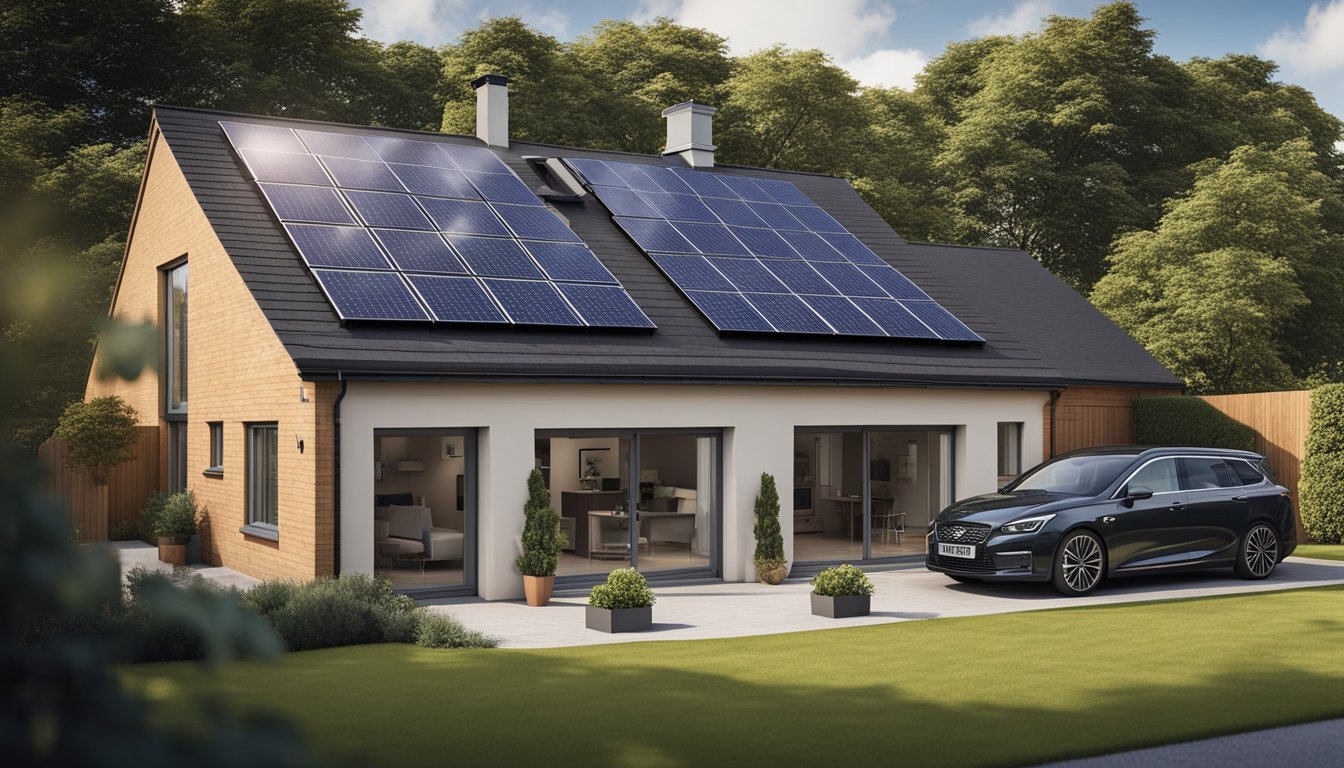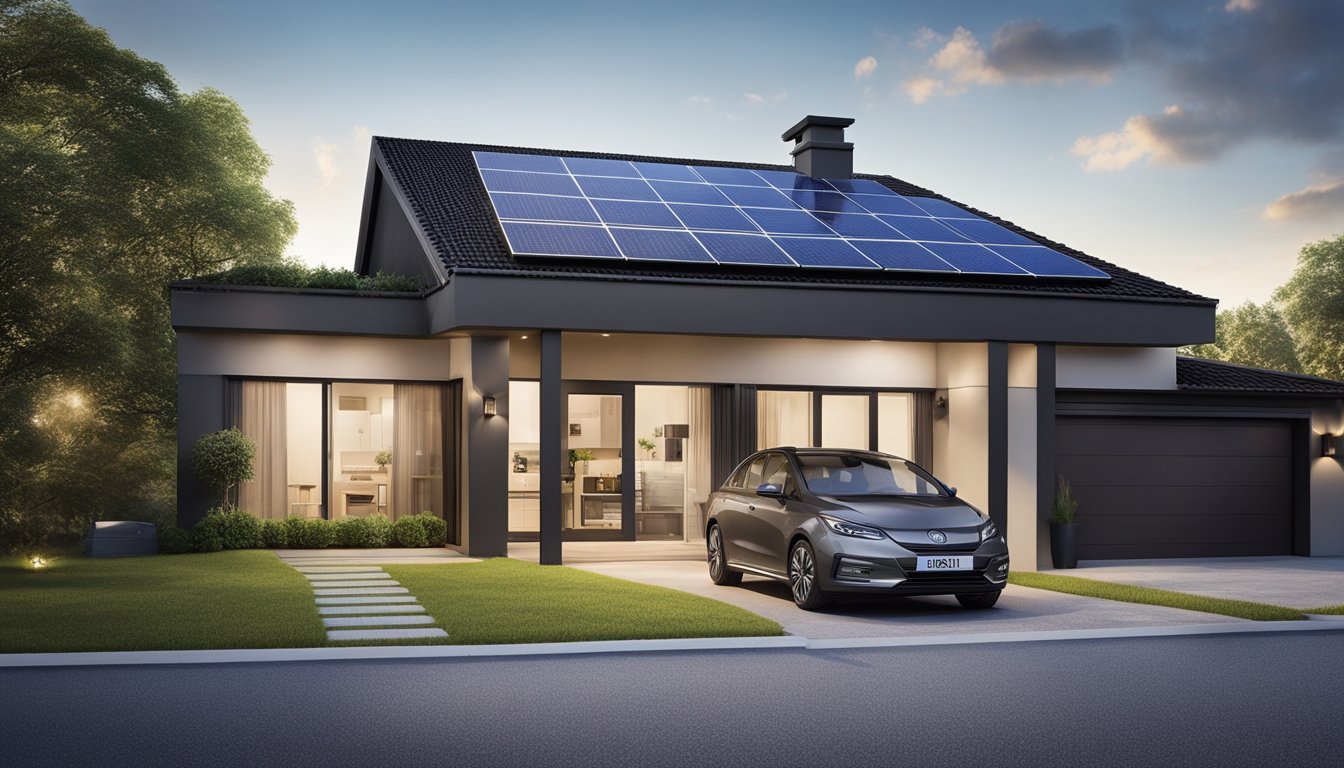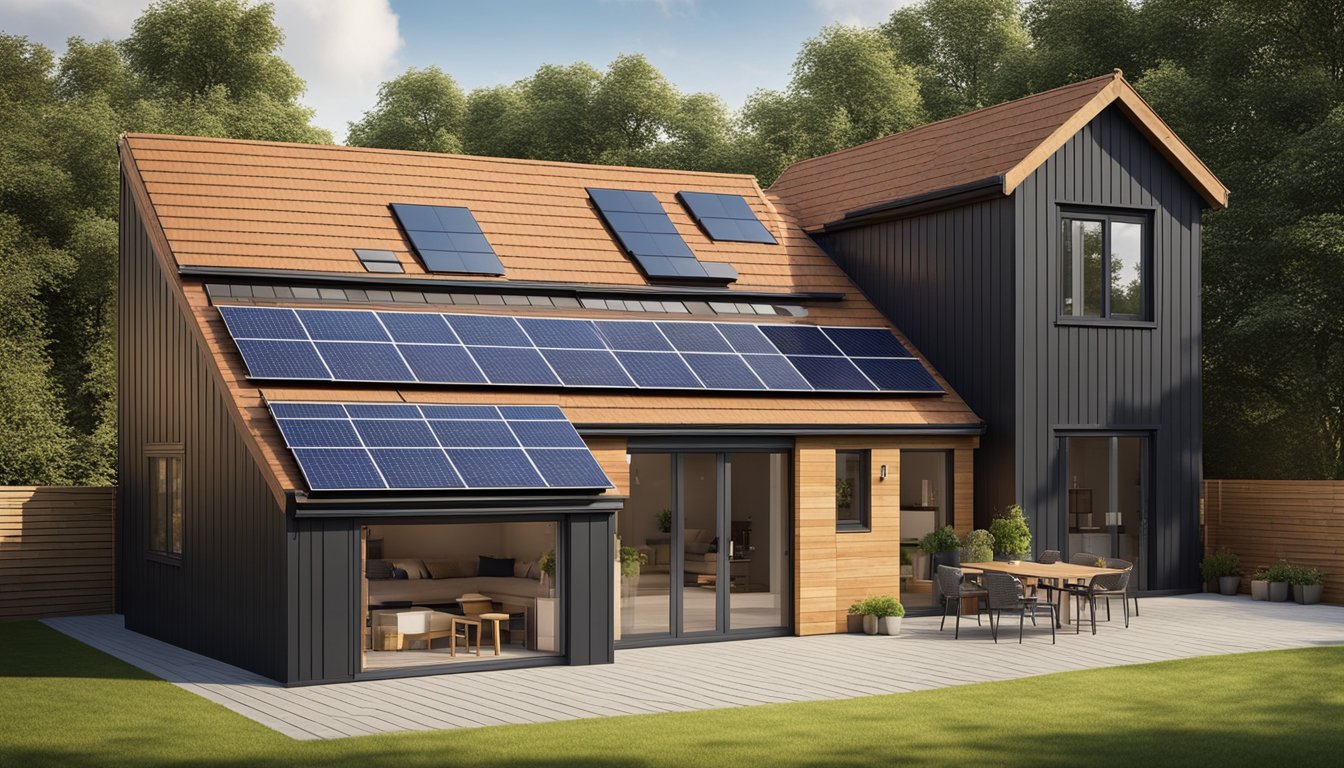Late updated: 16 Oct 2024 13:10
Written by: Eleanor Hartman
Energy Storage Solutions For UK Households: Maximising Efficiency and Savings
As energy costs continue to rise and climate change remains a pressing concern, UK households are increasingly exploring innovative ways to manage their energy use. One promising avenue is through energy storage solutions that enable smarter, more flexible consumption of renewable energy. These systems allow homeowners to store excess energy generated during the day, ensuring that they have a reliable, sustainable supply even when the sun isn't shining or the wind isn't blowing.

Integrating energy storage into our homes offers a dual benefit: boosting energy efficiency and contributing to sustainable energy consumption. With options ranging from traditional batteries to advanced thermal storage, these technologies are becoming more accessible and cost-effective. Adopting these systems not only reduces reliance on the grid but also decreases energy bills, providing significant savings over time.
Our journey towards embracing energy storage reflects a broader societal shift toward renewable energy and sustainability. By investing in these solutions, we're actively participating in a future that values energy independence and environmental responsibility.
Key Takeaways
- Energy storage boosts energy efficiency and sustainability.
- Investment in storage solutions reduces energy bills.
- Storage technologies support renewable energy use.
Overview of Home Energy Storage Systems

Home energy storage systems are integral to the efficient management of household energy, particularly as we integrate more renewable sources. These systems are designed to store energy for use during peak demand times, ensuring both cost savings and environmental benefits.
The Role of Battery Storage in Household Energy Management
Battery storage systems help households manage their energy use wisely. By storing energy produced during off-peak times, families can use power when energy rates are higher. Domestic battery storage systems, like the Tesla Powerwall and Powervault, offer reliable solutions in this space. These systems not only aid in reducing energy bills but also minimise the carbon footprint of a home.
By leveraging smart home energy storage, we can effectively bridge the gap between energy production and consumption. This flexibility enables us to participate in smart tariffs by capitalising on lower off-peak rates to further optimise energy use.
Comparing Types of Energy Storage Systems
There are several types of energy storage systems available, each with distinct features. Batteries are the most prevalent, and options include lithium-ion, lead-acid, and flow batteries. Lithium-ion batteries like the Tesla Powerwall are popular due to their high energy density and efficiency.
Thermal storage systems store energy as heat, which can be converted back when needed. A hot water cylinder is a common example of this type. Some systems also utilise heat batteries, which transform electricity into stored heat, providing versatile options for UK households looking to improve energy management.
Understanding Battery Capacity and Efficiency
When considering domestic battery storage, it is crucial to evaluate both capacity and efficiency. Battery capacity refers to the total amount of energy a battery can store, measured in kilowatt-hours (kWh). Higher capacity batteries can provide longer periods of energy usage without recharging.
Efficiency determines how much of the stored energy can be used effectively. Energy loss during storage and discharge can affect overall efficiency, so selecting systems with the best efficiency ratings is vital. We should look for systems that balance both capacity and efficiency to optimise home energy management.
Adopting Renewable Energy and Efficiency Measures
As we aim to reduce energy bills and cut down on carbon emissions, adopting renewable energy sources and implementing efficiency measures become crucial. The integration of solar panels, time-of-use tariffs, and strategies to enhance grid stability play significant roles in achieving sustainable energy consumption.
Integrating Solar Panels with Home Battery Systems
Solar panels are a practical way for households to generate renewable electricity. Combining them with home battery systems can enhance energy efficiency. By storing excess solar energy, we can use it during periods when the sun isn't shining. This not only reduces reliance on the National Grid but also lowers energy costs. The Smart Export Guarantee (SEG) allows us to sell stored surplus electricity back to the grid, providing a financial incentive. By investing in solar technology, we contribute to environmental sustainability while enjoying increased energy independence.
Maximising Savings with Time-of-Use Tariffs
Time-of-use tariffs offer a flexible approach to energy consumption by varying electricity prices throughout the day. This enables us to take advantage of low-cost energy during off-peak hours. By adjusting our energy-intensive activities, such as laundry or dishwashing, to these times, we can significantly reduce our energy bills. Providers like EDF Energy offer such tariffs to encourage users towards low-cost and sustainable energy practices. Understanding and utilising these tariffs lead us to more informed and efficient energy use, aligning with our goal of financial savings and environmental responsibility.
Enhancing Grid Stability and Reducing Carbon Footprint
Adopting renewable energy measures, such as integrating solar panels, directly contributes to grid stability and a reduced carbon footprint. During peak demand pressures, stored renewable energy can supplement the grid, alleviating stress and lowering carbon emissions. It enhances the resilience of the energy supply, supporting a smoother transition to renewable sources nationwide. Our collective actions towards reducing carbon emissions and embracing green energy sources add up, leading to a more sustainable energy grid that benefits both us and future generations.
Frequently Asked Questions

Energy storage solutions are gaining popularity among UK households looking to enhance their energy efficiency. Various options, ranging from battery storage to thermal solutions, provide differing benefits and cost considerations. For those interested in renewable energy, understanding these solutions is vital.
What are the best renewable energy storage options for UK households?
UK households have several options for renewable energy storage. Electrical battery systems like the Tesla Powerwall are popular; they store electricity generated from solar panels for later use. Thermal storage, such as hot water cylinders, allows excess heat to be stored and used when needed. Each option offers unique benefits tailored to different household needs.
How cost-effective are energy storage solutions for homes in the UK?
The cost-effectiveness of energy storage systems varies. Batteries can be expensive initially, with prices starting around £3,000 not including installation. However, these systems may lead to savings on future energy bills. Discounts are sometimes available when purchasing solar panels and storage systems together, offering potential cost reductions in the long run.
What are the reviews of the latest home energy storage systems in the UK?
Recent reviews highlight both advantages and challenges of home energy storage systems. Models from companies like So Energy and British Gas are well-regarded for their efficiency. While some reviews praise the innovation and potential savings, others note the high initial costs as a barrier for many households.
How much capacity is required for a typical UK household energy storage system?
The capacity needed for a UK household depends on energy use patterns. Typical residential systems range from 5 kWh to 25 kWh. A system around 10 to 15 kWh is often recommended for average energy consumption. Households with higher demands or those looking for greater independence from the grid may opt for larger capacities.
What are the advantages of thermal energy storage solutions for UK homes?
Thermal energy storage solutions offer specific advantages. They can effectively store heat generated from renewable sources for later use, contributing to energy savings. This is particularly beneficial during cold weather when heating demand rises. They also provide stability by reducing reliance on electricity during peak times.
Are thermal heat storage systems efficient for UK household energy savings?
Thermal heat storage systems are generally efficient for saving energy in UK homes. By capturing and storing excess heat, households can reduce energy expenses. Systems like heat batteries improve efficiency and can integrate seamlessly with existing heating systems. This option is particularly valuable during periods of lower solar energy generation.